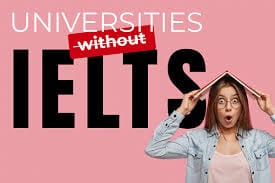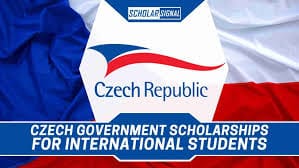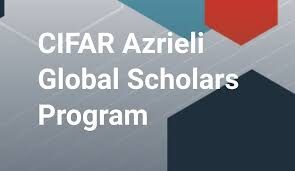If you’re an Anglophone African student, you know how stressful, expensive, and uncertain the process of getting an English test like IELTS or TOEFL can be. It is not a run in the park. Most times, you’ve already studied in English secondary schools or universities—literally, you speak, write, and think in English every day—and yet you’re asked to prove it again?
Sometimes you’re charged hundreds of dollars to sit for an IELTS only to get disappointed at the end of the tussle. Over the months, we have been receiving tons of messages from students asking how to go about the IELTS, which is exactly the purpose of this comprehensive post to guide you through. What if I told you that there are real, fully funded scholarships for 2025-2026 that accept that proof instead of forcing you through yet another English exam? That’s what this post is about. These aren’t just theory—they are real opportunities, with deadlines, with little money on the table, that you can aim for now.
Why This Matters
Because you have:
- The grades, the dreams, the willingness.
- Maybe you’ve already done secondary school or a prior degree in English.
- You’re ready to work hard; you only need doors open without extra financial or bureaucratic burdens.
So this list is for you. For us. For every student who’s been told “you need IELTS” when really all you needed was someone to believe your English already counts, and you’re good to go
What to Look For: English Test Waivers
Before the list, here are things you must check in every scholarship you apply for, so you’re not caught by surprise:
- Medium of Instruction (MOI) Certificate: A letter from your school/university stating that your instruction was in English. Very commonly accepted.
- Prior Education in English: If your secondary or tertiary institution used English as the teaching language.
- Internal Assessment or Interview: Some programs or universities do their own English check via interview or written test, instead of IELTS.
- English Test Alternatives: Some accept DUOLINGO, school transcripts, school certifications, WAEC/NECO English result, etc.
- Specific program vs university policy: Even if the university generally waives the English test for certain students, the department you want might still require it. Always check the specific program.
6 Scholarships for Africans in 2025-2026 That May Waive IELTS
Here are some scholarships that look promising for African students who want to study abroad without the IELTS hurdle. I do not guarantee everyone is completely IELTS-free in all cases, but I provide enough info and what you must check so you can target them.
| Scholarship | Country | Level | What is covered | English-test waiver | Deadline |
|---|---|---|---|---|---|
| 1. DAAD SCHOLARSHIP | Germany | Mostly Masters & PhD | Full tuition fees, often a monthly stipend, travel allowance, etc. DAAD is a prestigious scholarship scheme. | Many DAAD programs accept English proficiency via MOI letters, WAEC/NECO English grades, or proof that your previous study was in English instead of requiring IELTS. Germany’s English-taught programs are increasing. | Various deadlines, many open now for the 2026 intake; check the DAAD website for specific calls. |
| 2. MEXT SCHOLARSHIP | Japan | Undergraduate, Masters, PhD | Fully-funded: tuition, stipend, accommodation in many cases; sometimes round-trip airfare, etc. | Some MEXT Scholarship offerings do not require IELTS; instead, they may conduct internal English proficiency tests, accept prior English medium instruction, or accept a different certificate. | Deadlines vary; many Japanese scholarship calls for 2026 open in the latter half of 2025. Keep an eye on the Japanese embassy / MEXT sites. |
| 3. TURKEY BURSLARI | Turkey | Undergraduate/ Masters / PhD | Very generous: tuition, stipend, housing, sometimes Turkish language prep, etc. | In many instances, IELTS is not required if you have an MOI certificate or proof of English instruction in your past schooling. | Application windows open several times per year; check the official Turkey Burslari site. Some deadlines for 2026 are in mid/late 2025. |
| 4. CHINESE GOVERNMENT SCHOLARSHIP / CSC | China | All levels (Undergraduat, Masters, PhD) | Fully funded: tuition, accommodation, stipend, sometimes travel expenses. | Many Chinese universities under CSC offering English-taught programs accept applicants without IELTS if they can provide proof of English instruction or take internal assessments. | CSC application cycles usually start in early to mid-year for the next academic year. For 2026 admissions, check announcements from late 2025. |
| 5. HUNGARY SCHOLARSHIPS WITHOUT IELTS | Hungary | Bachelor’s, Master’s, PhD | Several scholarships in Hungary cover tuition + stipend or other supports. The cost of living is lower than in many Western European locations. | Some Hungarian universities/scholarship programmes accept MOI letters or exempt students from English tests if their previous education was in English. | Deadlines vary by university; many calls are in late 2025 / early 2026. |
| 6. AZERBAIJAN GOVERNMENT SCHOLARSHIP | Azerbaijan | Bachelor’s, Masters, PhD | Fully funded: tuition, living allowance, sometimes accommodation, etc. | According to some sources, IELTS/TOEFL is not required; a certificate of prior education in English or equivalent can suffice. | Application windows often align with the academic year start; verify with the Azerbaijani Ministry of Education’s site. |
Real Stories & Human Perspective
You’re reading this because maybe you’ve heard stories of how someone else got rejected. After all, they didn’t have an IELTS. Maybe you think: “Even if I have the grades, how do I afford the test? What if I fail it? What if I don’t have test centers nearby?” All valid. These opportunities exist to lift that burden from you.
I remember hearing from students in one of the universities around lament that English is the language of instruction, but because of the cost of getting official test centers, and other IELTS requirements, most students who intend to apply for a scholarship abroad program give up even before trying. Many of you have been studying, writing a thesis in English, reading in English; you speak every day of your life, yet you are asked for IELTS. That’s unfair. These scholarships are ways institutions are recognizing that what you can do in practice matters, not just what test scores you have.
How to Apply for These Scholarships Without IELTS
To make your application as strong as possible, prepare the following:
- Research each scholarship early
Visit the official scholarship website and confirm their current English language policy. Policies can change from year to year. - Get your MOI / English Medium Certificate
Ask your school/university registrar to issue an official letter stating that your instruction was in English. Ideally, on letterhead, with stamp/signature. - Gather strong transcripts & proof of academic achievement
Since you won’t be able to use IELTS to prove language, the rest of your application must be solid: grades, projects, research, leadership, etc. - Write a compelling personal statement
Use it to show: why you want to study this program, what difference you intend to make, and how your English background supports your goals. Be authentic—share your journey. - Reach out
Contact the scholarship office/admissions at the university, explain your situation (“Anglophone student, studied in English medium, would like to use MOI instead of IELTS”) and ask for confirmation in writing. Sometimes they’ll respond and waive IELTS explicitly. - Watch the deadlines & visa/living cost considerations
Even when IELTS is waived, visa applications or embassies might ask for language proof. Be sure you check all parts: admission, scholarship, and visa. -
Gather strong academic documents
Transcripts, degree certificates, WAEC/NECO English results, and recommendation letters. Make sure they’re clear and certified. -
Apply before the deadline
Late applications almost never get considered, and early submissions show seriousness.
Mistakes to Avoid When Applying for Scholarships Without IELTS
-
Assuming every program waives English tests
Always double-check the exact department or course you’re applying for. -
Failing to provide clear proof
A vague statement like “my school was in English” won’t cut it. You need an official, signed MOI certificate. -
Waiting until the last minute
Getting documents from schools, recommendation letters, or embassy appointments can take weeks. Start months ahead. -
Neglecting the personal statement
Since you’re not submitting IELTS, your written application becomes a bigger indicator of your English proficiency. -
Ignoring visa rules
Admissions may waive IELTS, but immigration might still ask for proof. Know both sides. -
Copy-pasting generic essays
Scholarship committees can tell. Show your authentic story—why you want to study, what difference you’ll make.
Important Caveats & Tips
-
Just because a scholarship says “no IELTS” doesn’t mean every program or every department is exempt. Always check the specific department / major you want; sometimes, some majors do require it even if others don’t.
-
“Proof that previous schooling was in English” or a Medium of Instruction (MOI) certificate is commonly accepted. Sometimes you may need a letter from your school or university registrar.
-
Interview-based assessments are also used in some cases as alternatives.
-
Deadlines vary a lot; many of these open in late 2025 for programs starting in 2026.
-
Make sure your transcripts, grades, and any recommendation letters are strong. Since you’re not submitting IELTS, other parts of your application get more weight.
Frequently Asked IELTS Questions and Answers
1. If a scholarship waives IELTS, will I still need it for my visa?
Sometimes yes. Some embassies require proof of English even if the university doesn’t. Always check embassy websites for the latest rules.
2. What is a Medium of Instruction (MOI) certificate, and how do I get one?
It’s an official letter from your previous school/university confirming your classes were taught in English. Request it from your registrar or academic office well before deadlines.
3. My WAEC/NECO English grade is good. Can it replace IELTS?
Many scholarships accept WAEC/NECO English as proof for Anglophone Africans. Confirm with each scholarship’s guidelines.
4. Are Duolingo or other cheaper online tests accepted instead of IELTS?
Increasingly yes. Some universities accept Duolingo or even their own internal test/interview. Always ask.
5. If I’m from Nigeria/Ghana/Kenya, can I automatically skip IELTS?
Not automatically. Some universities list countries whose citizens are exempt, but others still require a formal waiver or certificate.
6. Will not having IELTS reduce my chances of winning the scholarship?
If the scholarship explicitly says IELTS is not required, then no. Focus on making your application strong—grades, motivation, recommendations, personal statement.
7. Can I apply first and send the MOI later?
Some scholarships allow you to upload a placeholder and later send the MOI; others won’t process your application without it. Check each program’s instructions carefully.
Final Encouragement
Yes, the path is steep. Yes, sometimes unfair. But this shifting trend—more scholarships, more universities accepting MOI or other proof—means you are not alone.
You don’t have to be held back by a test you’ve practically prepared for all your life, just because of the procedure. Your hard work in school, your command of English through reading, writing, speaking—all of that counts. In short, the fact that you can read and understand this post is proof of your English proficiency.
If you chase these scholarships, prepare carefully, and apply with confidence, your chances are strong.






